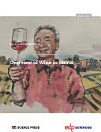The Art of Remembering: Urban Memories, Architecture and Agencies in Contemporary China
About this ebook
China has undergone one of the fastest urbanisation and urban renewal processes in human history, but discussions of urban memory in China have tended to be practice-oriented and lack theoretical reflection. This book brings together interdisciplinary architectural scholarship to interrogate the production of urban memory and examine experiences in China. The 14 chapters explore different processes, projects, materials, architecture and urban spaces in different Chinese cities by analysing cityscapes such as temples, bridges, conservation projects, architectural design, historical architecture, memorial hall, market street, city images, custom bike, food market and so on. The book deals with different agencies and methods, tangible and intangible, in the construction of memories aimed at promoting hybridised multiple identities, and explores the interplay of different versions of memory, i.e. state, public, regional, local, individual and collective memory.
This book will be essential reading for scholars and students of architecture and urbanism, cultural studies and China studies, as well as architects, urban planners and historians interested in these fields.
About the author
Yat Ming Loo is Associate Professor in Architecture and Urbanism at the University of Nottingham Ningbo China. His research interests include intercultural architecture/city, postcolonial urbanism, urban memory, minority spaces and decolonising architecture. He is the author of Architecture and Urban Form in Kuala Lumpur: Race and Chinese Spaces in a Postcolonial City.
Hua Li is Professor and Deputy Director of Architectural History and Theory Research Institute, School of Architecture, at Southeast University, China. She has been interested in the relation between modernity and formation of architectural knowledge, history of modern Chinese architecture and cross-cultural practice of architecture.
Jing Xie is Associate Professor in Architecture and Built Environment, at the University of Nottingham Ningbo China. With research interests in Chinese architecture and urbanism, he is the author of The Origin and Development of Dougong and Zaojing in Early China (2022), Chinese Urbanism: Urban Form and Life in the Tang-Song Dynasties (2020), Heritage-led Urban Regeneration in China (2017).
Eugenio Mangi is Assistant Professor in Architecture and Urban Design at the Department of Architecture and Built Environment, University of Nottingham Ningbo China. His research interests are sustainable and resilient urban and rural transformations, local community engagement and participation and urban policy impact.





